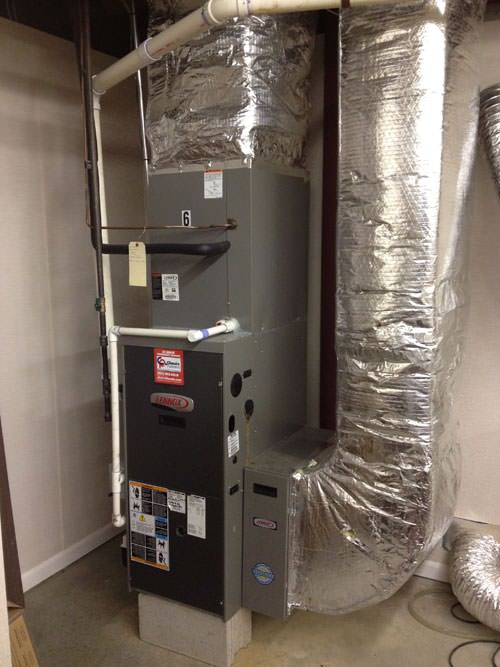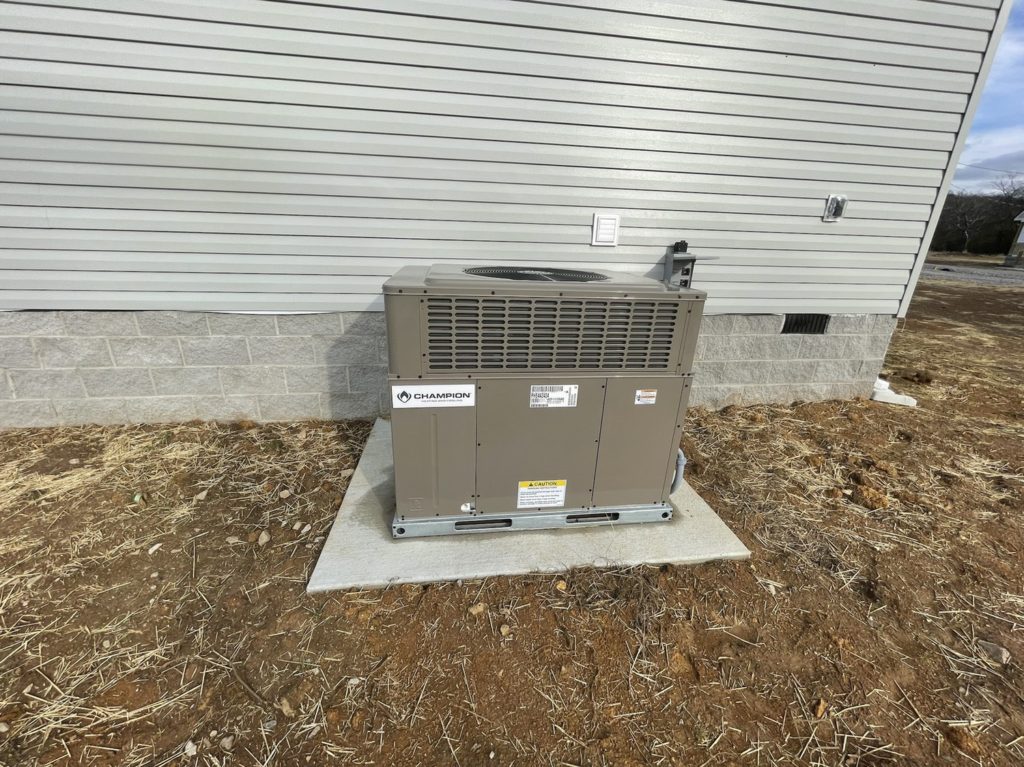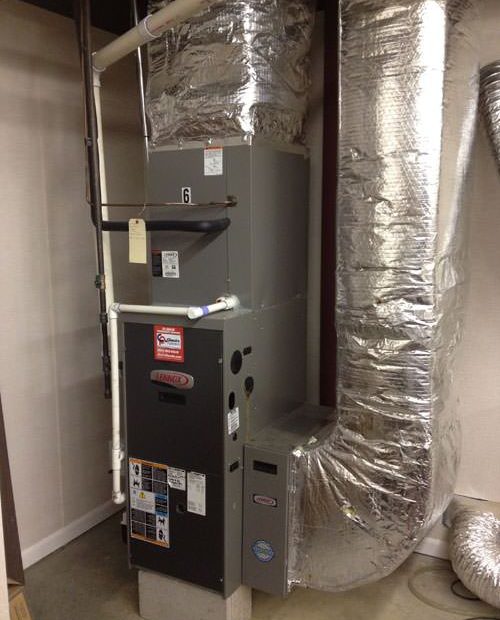When temperatures get below freezing your homes climate completely changes. Therefore, every component of your house must change with it. AC units of course, taking the brunt of it. I had one person ask me the other day why some ac units don’t kick on in the winter, another why theirs steams in the cold? I wanted to take a quick moment and explain the basics of HVAC systems for those that don’t know. For starters there are two basic systems I will be covering, gas systems and heat pumps. Not sure which one you have? Do you have a large gas/propane bill? If so, you have a gas system, if not (and you live in Tennessee) you most likely have a heat pump.

Gas Furnace First.
To start let’s explore a gas system. A gas heating and air system (furnace) has two basic parts, an electric air conditioner and a gas furnace. Basically, these systems work separately and share the same ductwork to keep your house a comfortable temperature. When the heat is on, the air conditioner does not function, that why you don’t hear the big fan run in the winter, and why it is quieter. Gas heat is efficient and very “warm” coming out of the vent; therefore, it is considered by some to be the most comfortable way to heat a house. It does have drawbacks, most importantly the extra wear and tear on the unit. In case of any malfunctions it’s always a good idea to ensure you have operable carbon monoxide detectors.

Heat Pump it up?
The other system is a heat pump. One way to know you have a heat pump other than the absence of gas is by noticing the emergency heat button on your thermostat. A heat pump works differently than a gas unit in that the air conditioner runs all year round, it just runs in reverse in the winter. See, during the summer your unit replaces warm air in your house with cooler air from outside (with the help of compression and refrigerant). Likewise, in the winter it replaces the cool air inside with warmer air outside (Heat pump). The problem with this is that when the temperature outside gets below a certain temperature the heat pump becomes ineffective, therefore that is why most heat pumps have emergency heat. This is essentially transforming your unit into an enormous space heater, generating tons of heat, but using a lot of energy. While a heat pump is less costly than gas in most cases, the emergency heat is more costly to operate. In addition, you may hear a heat pump compressor on outside while its off inside during the winter. Don’t be alarmed, in most cases it is performing a defrost function, to keep it from icing up.
